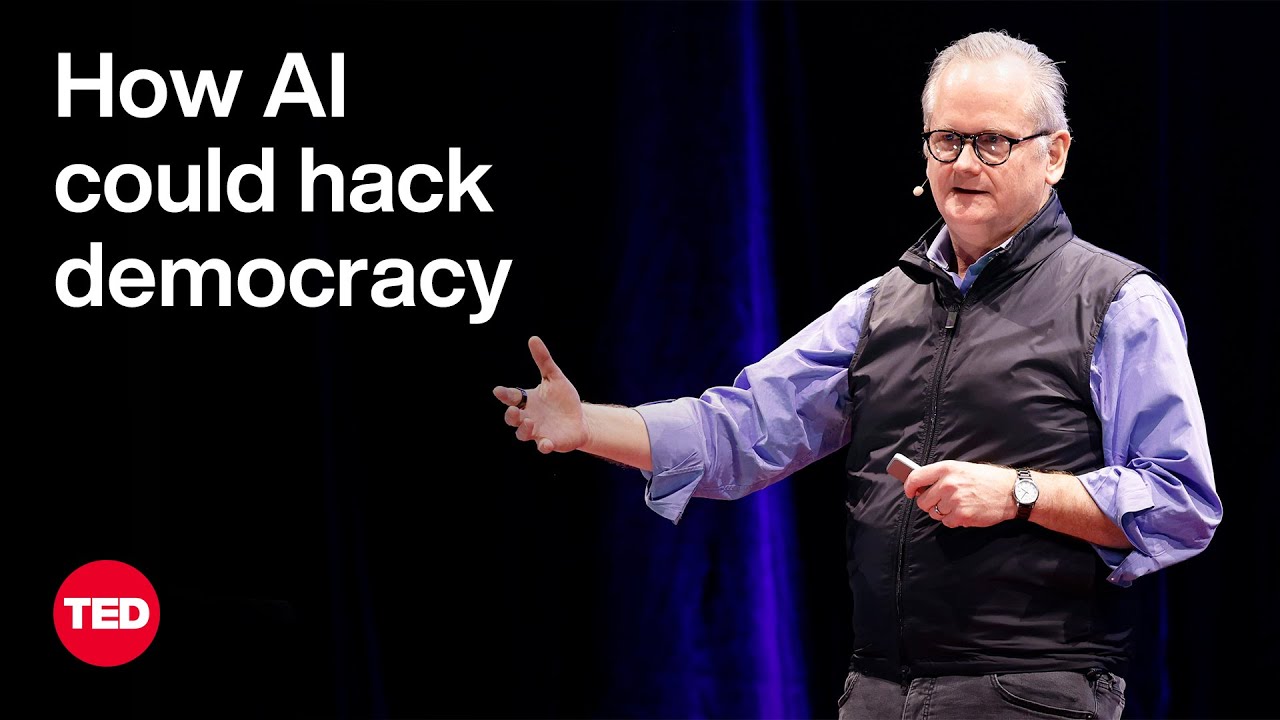In his TED talk, Lawrence Lessig discusses the threats to democracy posed by artificial intelligence and corporate influence, highlighting how these forces can manipulate public perception and undermine democratic processes. He advocates for reforms like citizen assemblies to restore balance and protect democracy, urging individuals to take action for a better future.
In his TED talk, Lawrence Lessig reflects on the state of democracy in the United States, particularly in the aftermath of the January 6, 2021, Capitol riot. He highlights the alarming statistic that a significant portion of Republicans still believe the 2020 election was stolen, despite overwhelming evidence to the contrary. This persistent belief, he argues, indicates a troubling shift in how facts are perceived and suggests that collective misperceptions are not accidental but rather the result of intentional influences. Lessig emphasizes the need for a heightened awareness of these dynamics, likening the situation to a paranoia of being hunted.
Lessig introduces the concept of artificial intelligence (AI) but clarifies that he does not intend to criticize it outright. Instead, he places AI within a broader context of “artificial intelligence,” which includes systems and institutions that humans have created to achieve specific goals. He compares democracy and corporations to forms of AI, suggesting that both have their own objectives and rationalities. However, he argues that corporations often operate more effectively than democracy, particularly in a corrupted political environment, leading to a scenario where corporate interests can overshadow the public good.
The talk delves into the relationship between democracy, corporations, and digital AI, illustrating how corporations can manipulate democratic processes through financial influence. Lessig warns that this dynamic creates a situation where corporations control democracy rather than the other way around. He cites Geoffrey Hinton’s observation that more intelligent entities are rarely controlled by less intelligent ones, suggesting that the current structure of power favors corporate interests over democratic ideals. This imbalance raises concerns about the future of democracy in the face of advancing AI technologies.
Lessig discusses the impact of social media and digital AI on public perception and engagement, describing it as a form of “brain hacking.” He explains how these technologies exploit human weaknesses, leading to increased polarization and ignorance among the populace. The algorithms driving social media prioritize engagement, often at the expense of truth and constructive discourse. This results in a society that is more divided and less capable of collective action, undermining the foundations of democracy.
In conclusion, Lessig calls for urgent action to protect democracy from the harmful influences of AI. He advocates for reforms such as citizen assemblies, which can provide a more representative and deliberative approach to democratic decision-making. These assemblies, he argues, are not just beneficial but essential for the survival of democracy in an age where technology poses significant threats. He urges individuals to act with love and determination, emphasizing the importance of striving for a better future for humanity while there is still time to make a difference.
